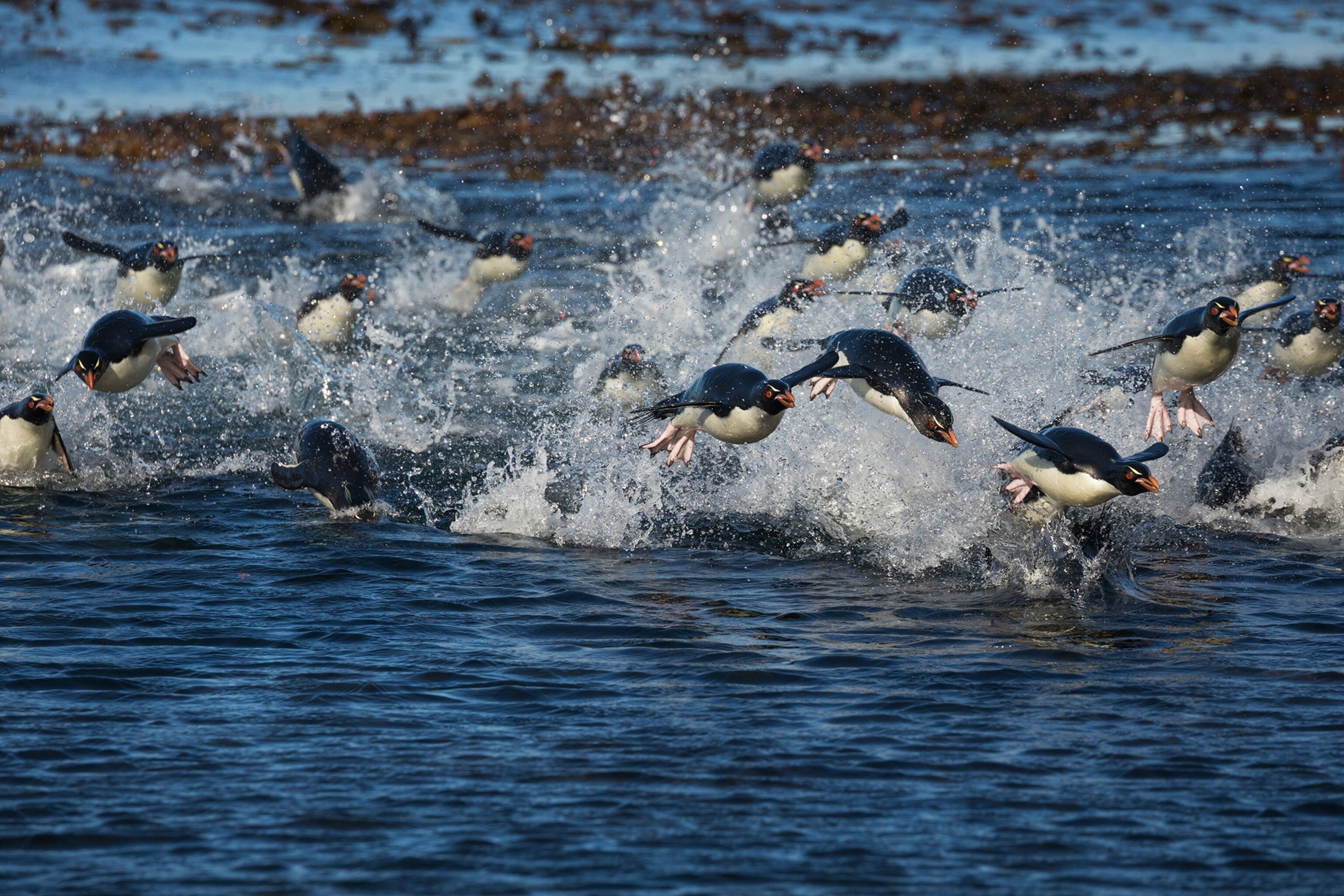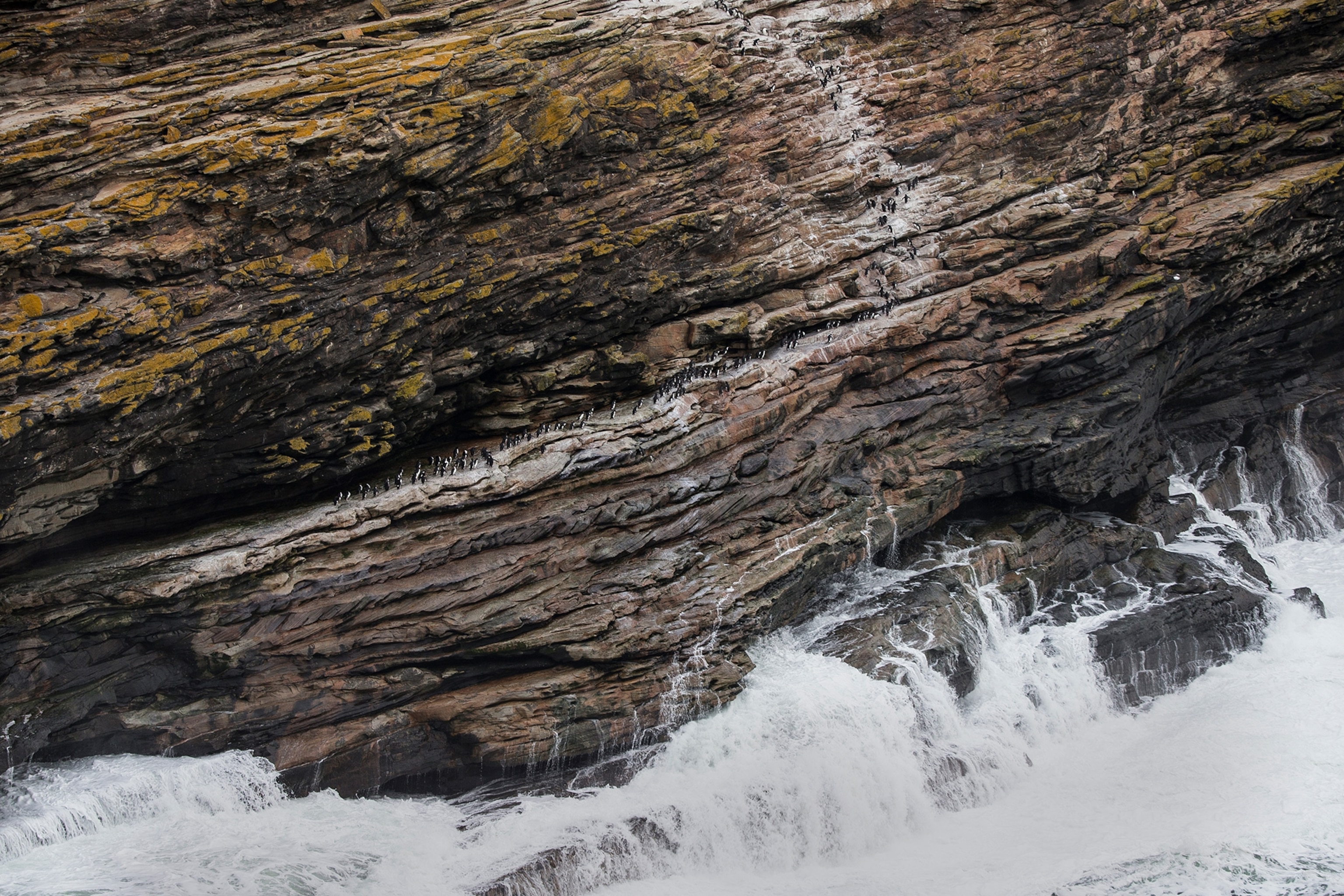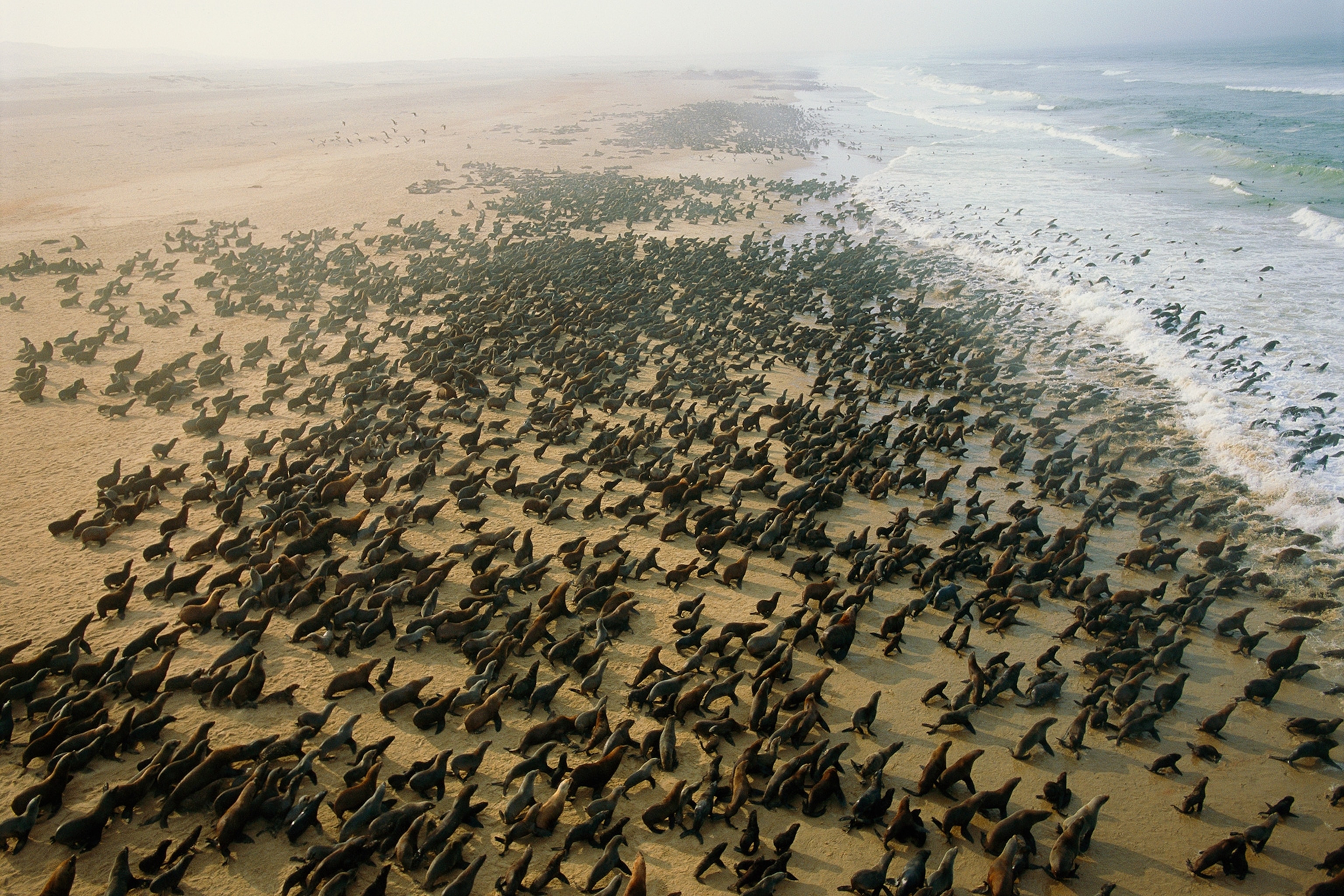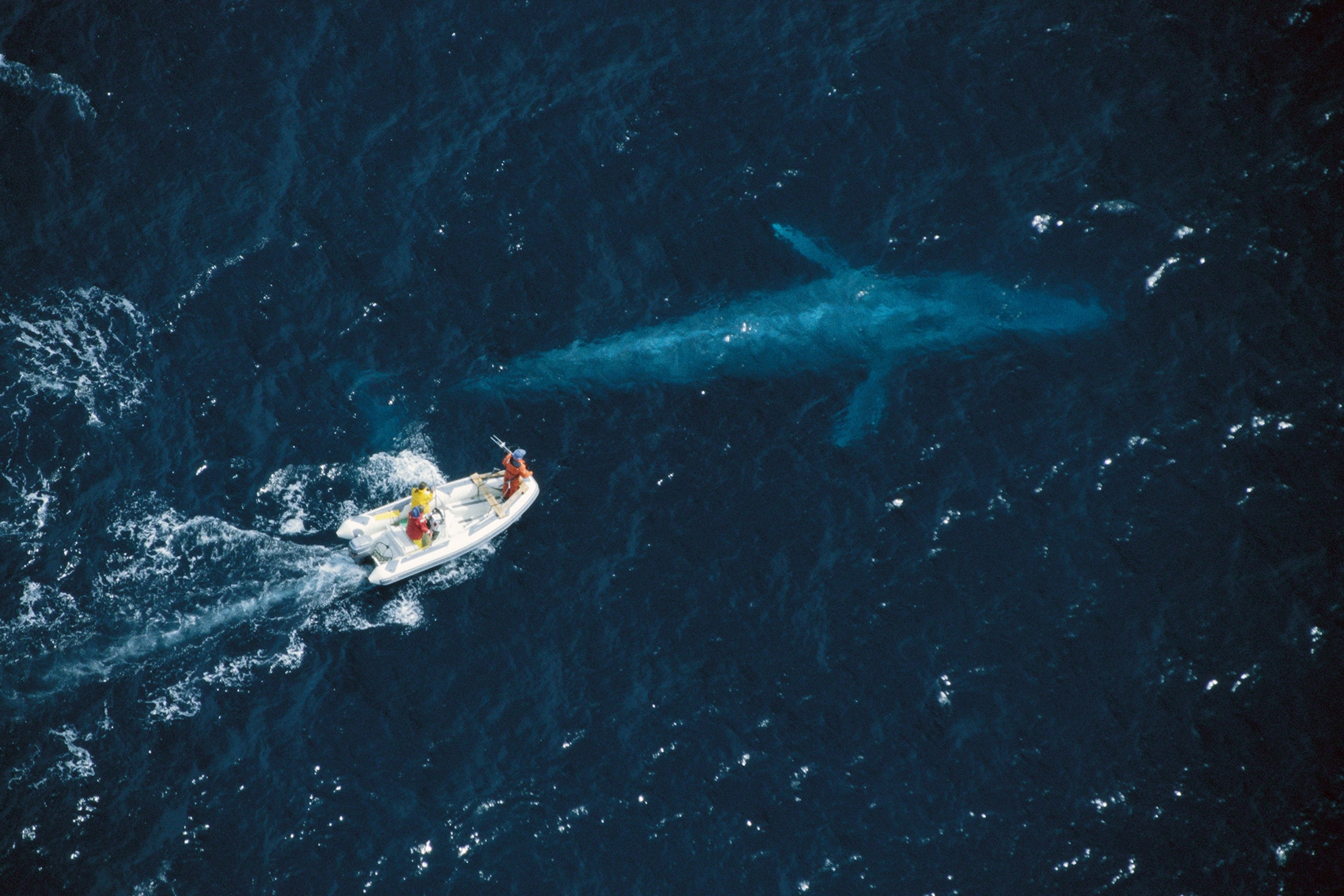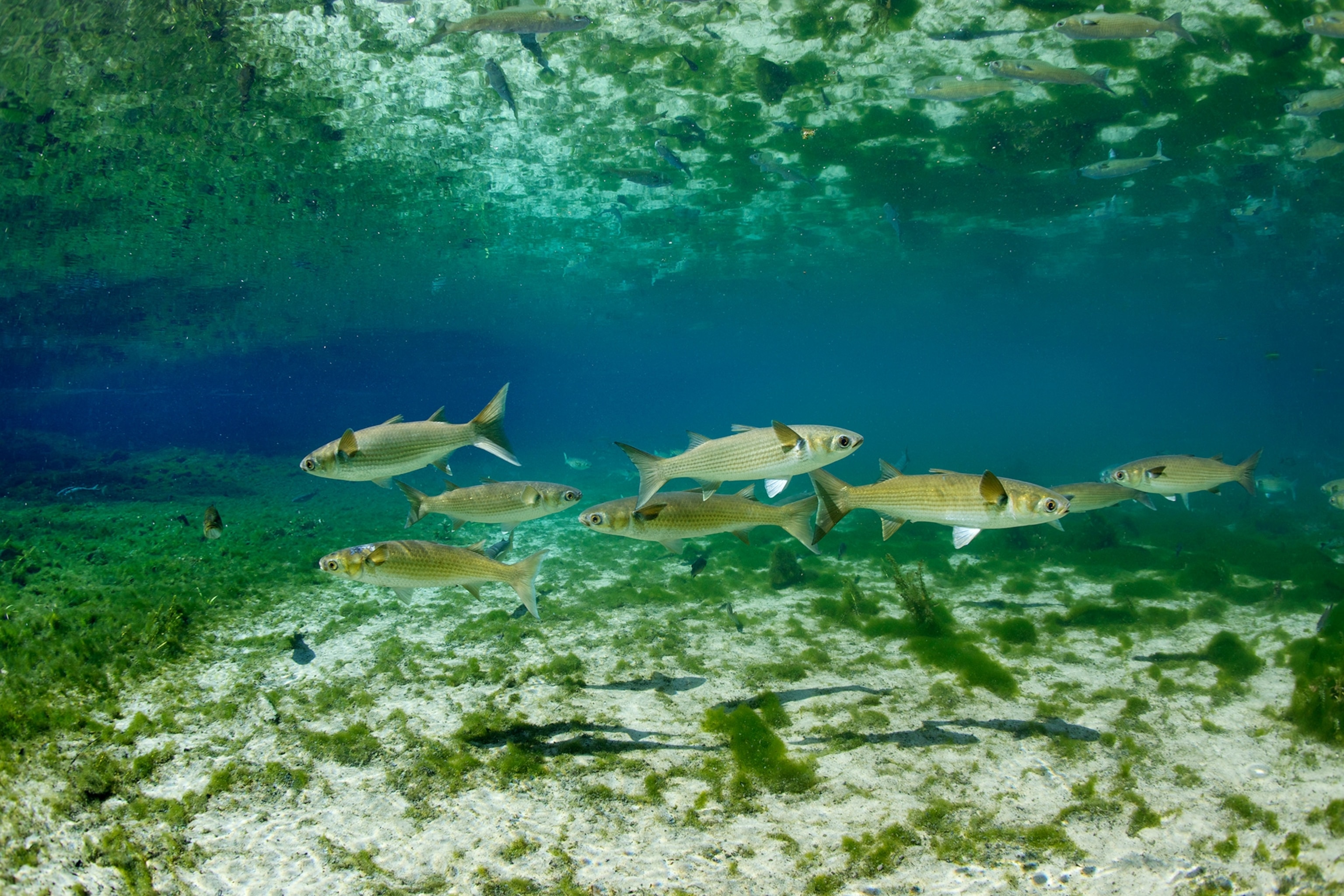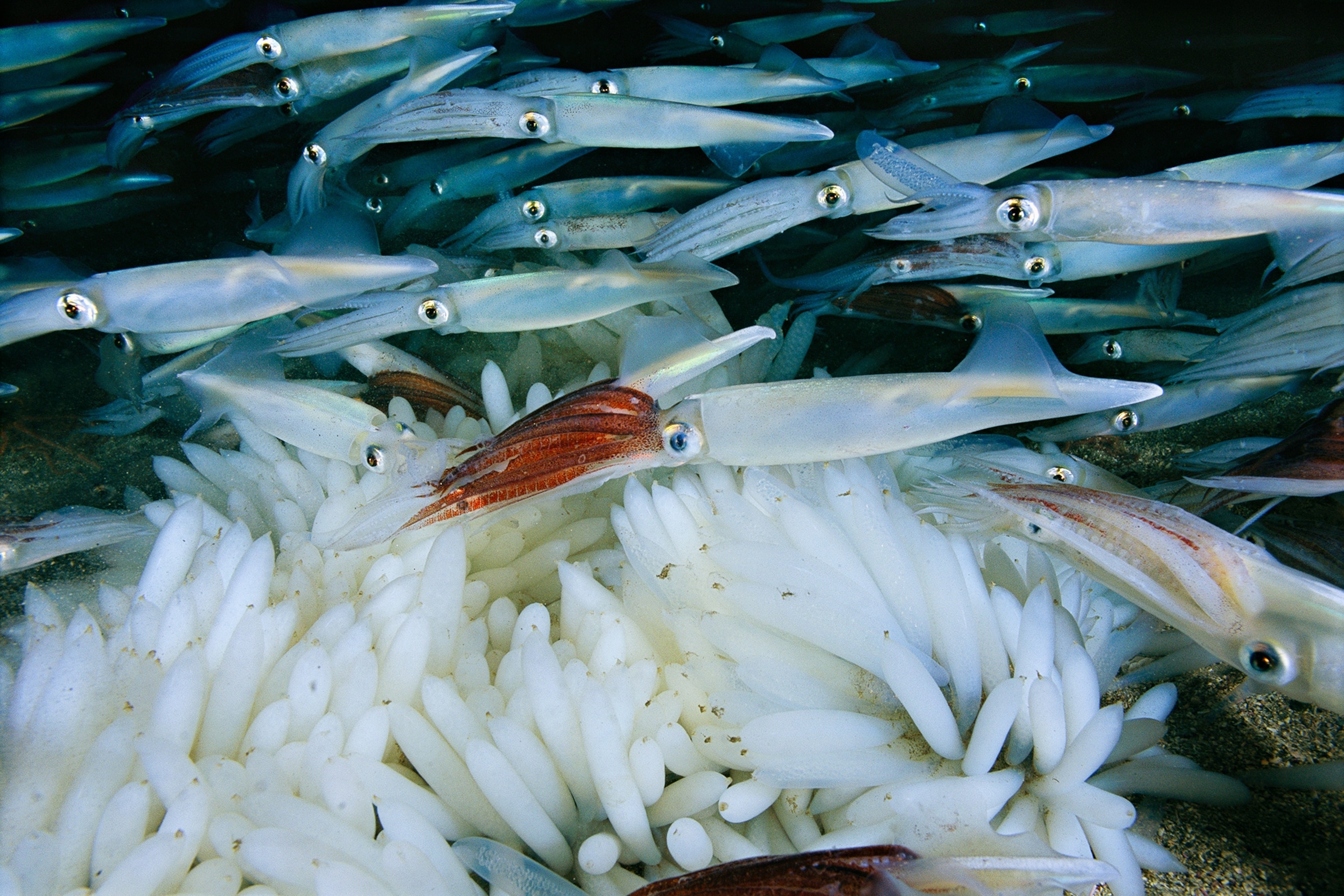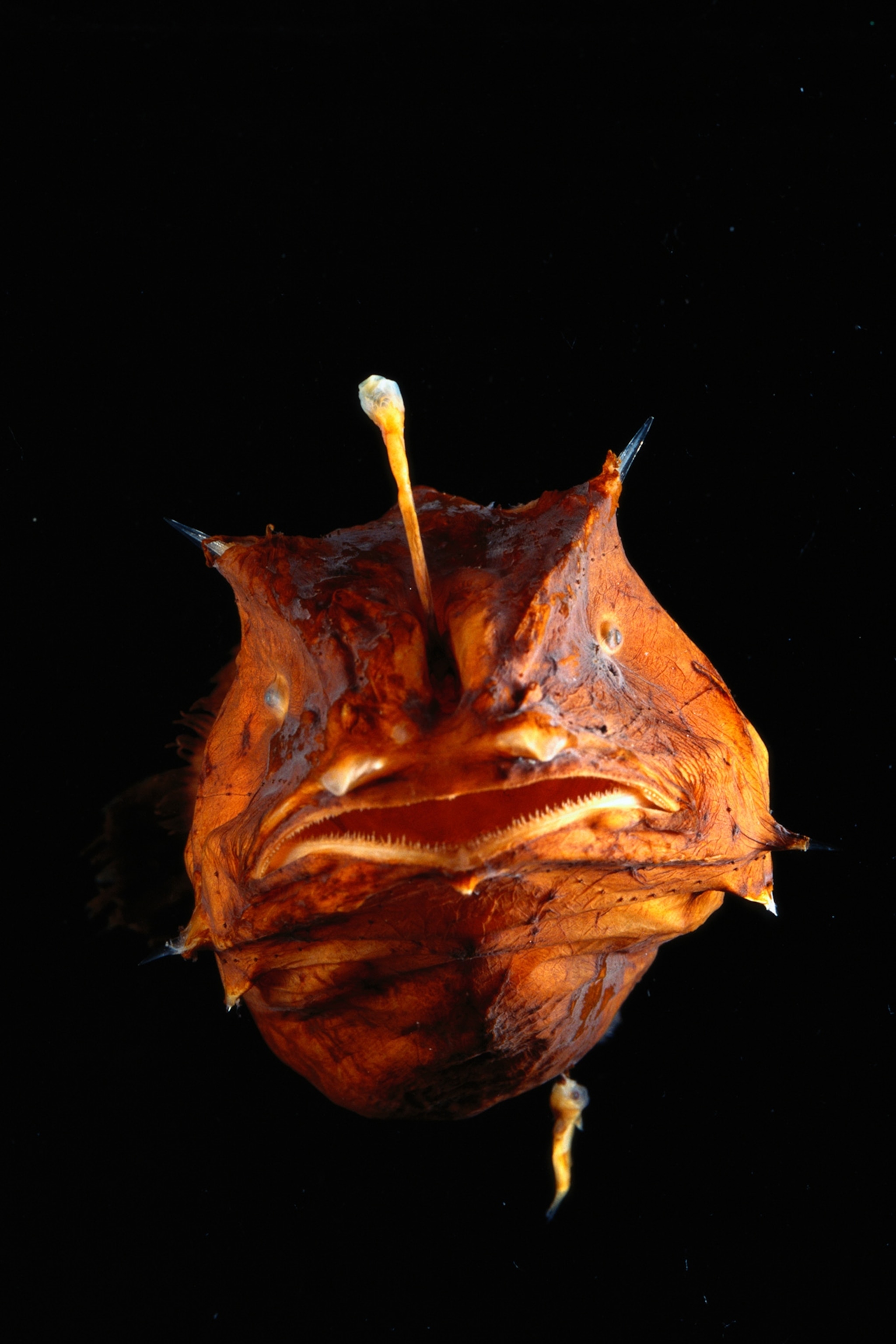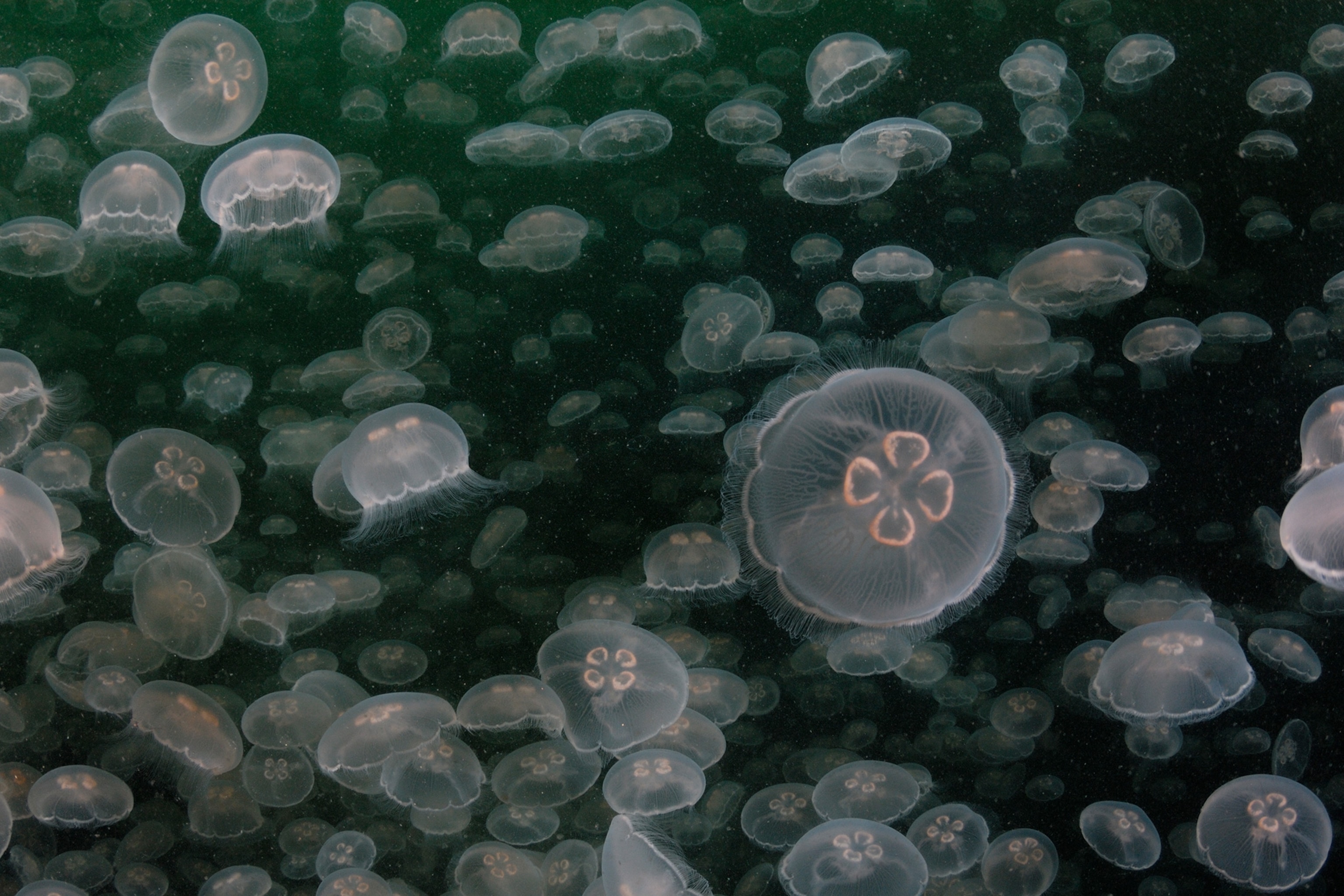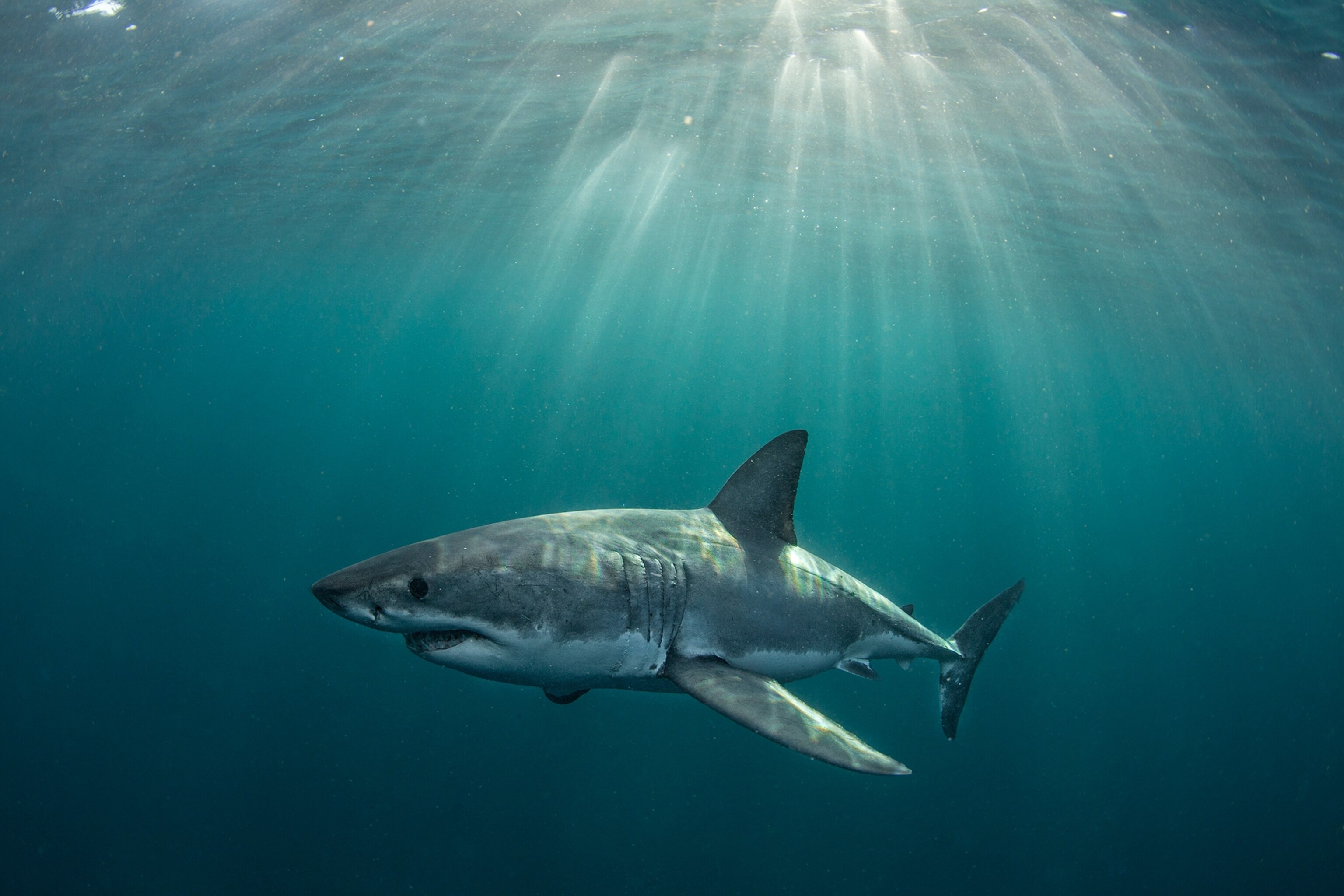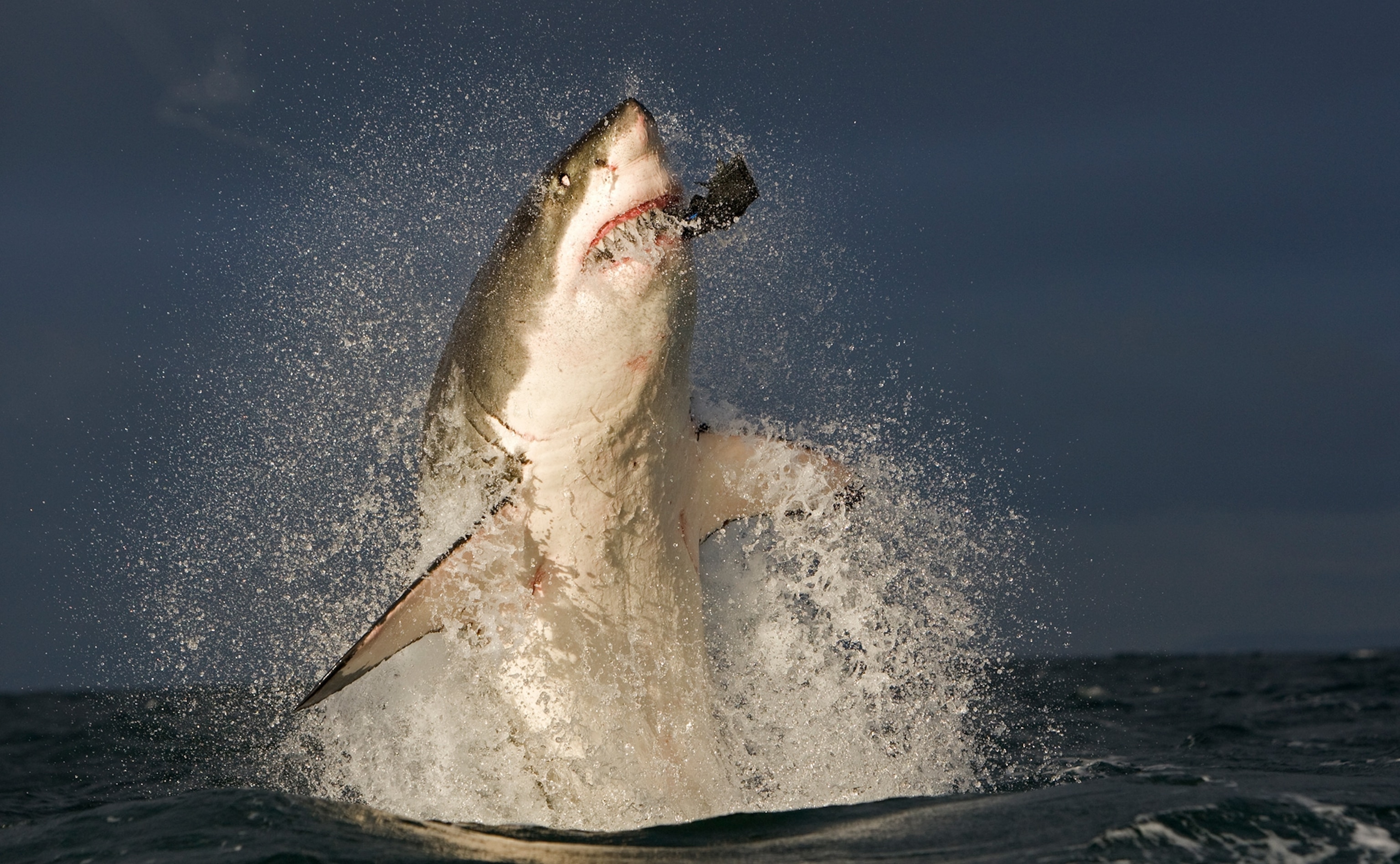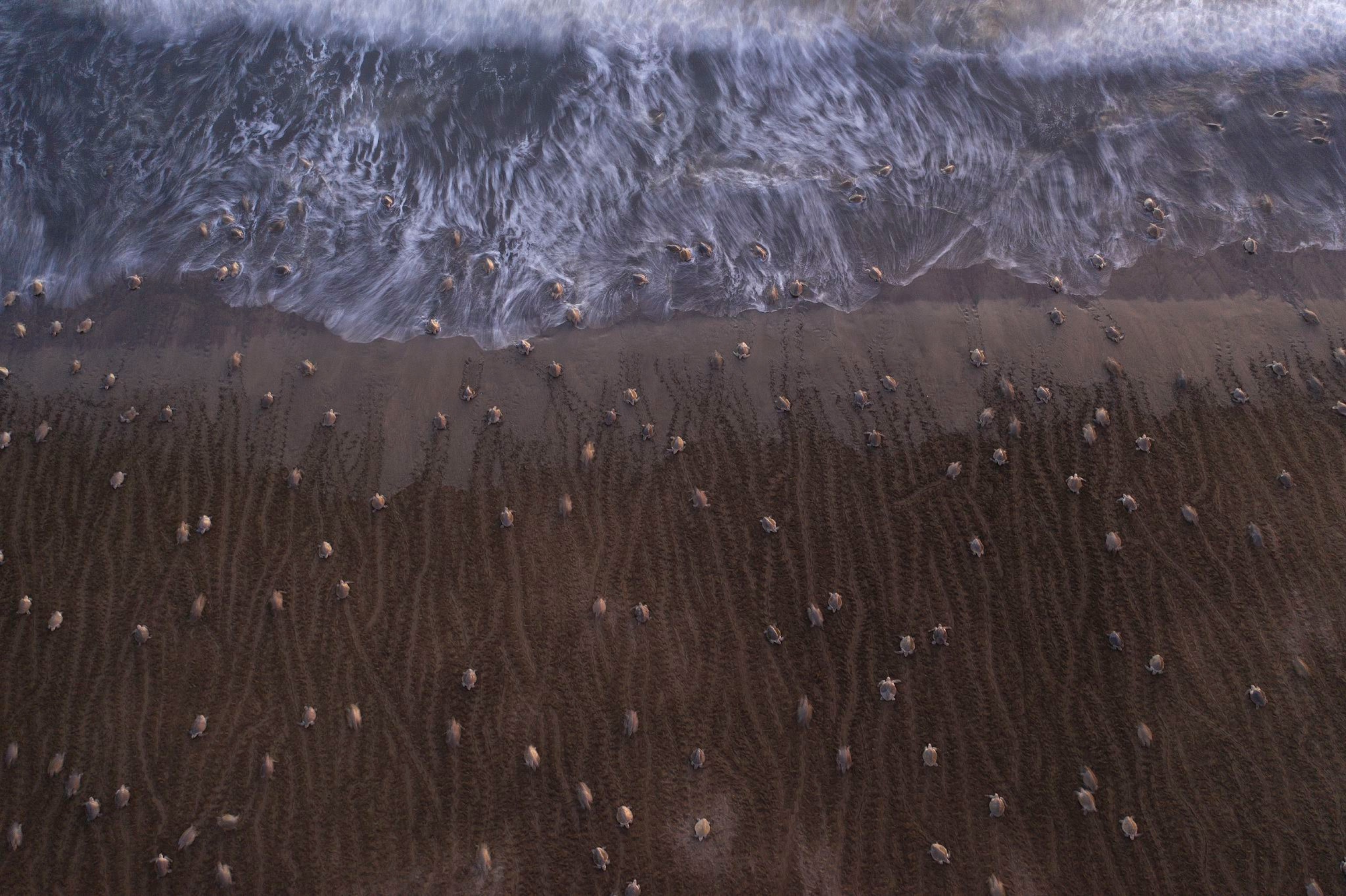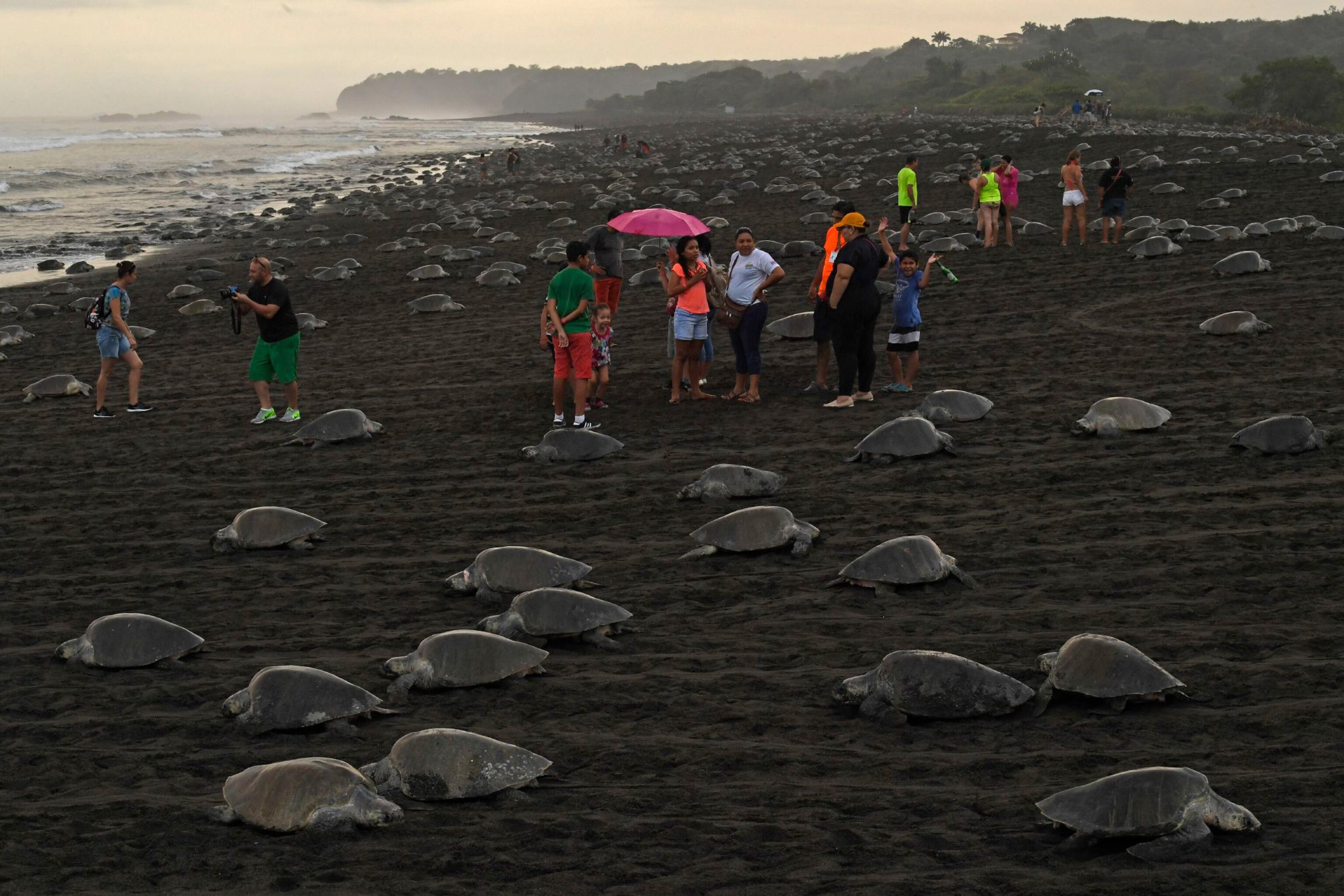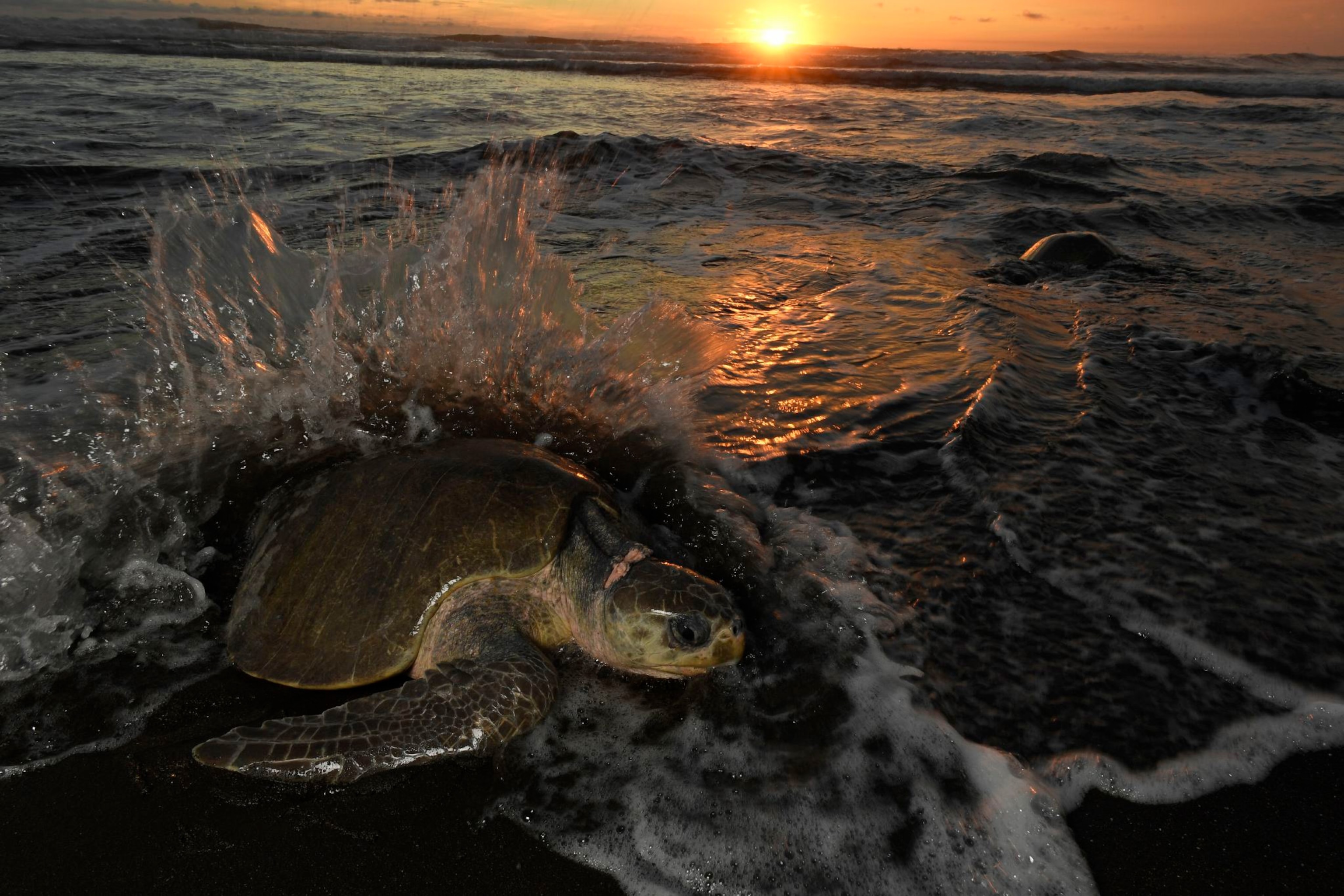How the oceans have become hostile for animals
Climate change and overfishing have rocked life in the ocean—but some species fare better than others.
Traditionally, the ocean wasn’t all that hostile of a place to live. The species that make the ocean their home have evolved over millennia to thrive in its depths.
What seems mind-boggling to us—a fish’s ability to live five miles under the sea, for instance—is just life for other animals. “That environment’s not hostile to them—its like us being in our living rooms,” says Matthew Savoca, a postdoctoral researcher at Stanford University’s Hopkins Marine Station, in Monterey.
Swimming around with up to six male fish permanently fused to her body, for example, is just a normal part of life for a female anglerfish. A male digs his teeth into a female and every one of his organs, except his testes, withers away until he’s just a parasite hanging off her body. Nothing out of the ordinary—it’s just part of deep-sea living for an anglerfish.
Although oceans do change over time, such as when Earth has cycled in and out of ice ages, those changes happen gradually, and species evolve to cope.
“But humans hurt the [ocean] in a global way, whether through overfishing or plastics or whatever—and we do it very quickly,” Savoca says. “It’s a frequent, unabating, constant assault.”
For many animals, evolution simply cannot keep up with human-driven change. Plastic, unsustainable fishing, ocean acidification, and warming waters, among other things, have all made the ocean a more hostile place for the animals that live there. (Read about the animals that thrive in hostile mountain conditions.)
Long-living animals, like albatrosses and blue whales, evolve very slowly over thousands of years, because their generations are spaced so far apart. But plastic, for example, has only existed for 60 years—essentially the lifespan of a single animal. It could take 60,000 years for generations of these long-living species to begin to adapt to living with it, says Savoca. The ocean has essentially become a minefield of plastic. (Read about the pregnant whale that died with 50 pounds of plastic in her stomach.)
Animals that reproduce frequently and have short lifespans, like small fish and plankton, evolve more rapidly. “Their species might be saved by evolution,” says Savoca.
How animals live in the ocean also influences their ability to adapt to change. Generally, animal species fall somewhere along a spectrum. At one end are the specialists, which are typically apex predators, such as orcas and sharks, that are evolved to thrive in a very particular environment and eat specific prey. Because their focus is so narrow, they’re pros at exploiting their habitat, but they’re terrible at adapting to change, Savoca says. As their environments change or their primary food source gets depleted, they’re thrown into unfamiliar circumstances they struggle to adapt to.
Then there are the generalists—Atlantic cod and flounder, for instance—that are “jacks of all trades, master of none,” says Savoca. They’re able to thrive in many different environments and eat a varied diet. While generalists don’t dominate their surroundings like apex predators, they can do adapt when their environment becomes unpredictable.
But advantages only go so far.
Killing campaigns, such as centuries of cod fishing or whaling in the North Atlantic, affect generalist and specialist species equally. And this “slash and burn killing,” says Savoca, creates ripple effects throughout entire ecosystems and food chains.
“We whaled out 95 percent of whales in less than 100 years, which is the most rapid loss of biomass in history,” says Savoca. “Humans are such efficient killing machines that [we’re capable] of removing entire species from our planet in less than a century.”


